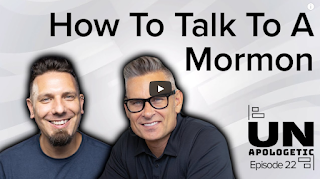The two types of arguments against The Church of Jesus Christ of Latter-day Saints
With religion on the decline in the West, I am sure by now all Christians have grown accustomed to fending off attacks on their faith, while increasing numbers are daily falling prey to the rhetoric and losing their faith. Members of The Church of Jesus Christ of Latter-day Saints, like me, are susceptible to the general secular arguments against religion and Christianity as well as more targeted arguments against our peculiar version of Christianity. Directed attacks on the Church of Jesus Christ fall into two broad categories with different target audiences:
- Rhetoric directed toward members of The Church of Jesus Christ aiming to dislodge their faith in the Church and its teachings. This type of argument often has as a subject unsettling events from church history or attempts to discredit modern revelations and scriptures. These arguments may come from people outside the church, including from other religions, but the most vehement and persistent voices are often disaffected former Church members. One characteristic of this class of rhetoric is that it may be misleading or false, but it must at least be plausible, because the audience consists of members of the church who obviously have some understanding of what the church is and what its beliefs are.
- Rhetoric directed toward Christians who are not members of the The Church of Jesus Christ, to discourage them from wanting to learn more about The Church or being baptized into it. This may be understandable in some sense because The Church of Jesus Christ does not accept the authority of baptisms from other churches and aggressively proselytizes from other Christian denominations, while my understanding is that Protestants and Catholics often have a sort of implicit agreement not to proselytize each others members, and tend to accept each others' baptisms. One characteristic of this class of rhetoric is that because the target audience doesn't have much of an understanding of The Church, the arguments need not be plausible and are often completely unhinged. It may even be that authors of this rhetoric consider the more unhinged bits to be the most effective at scaring away potential converts to The Church.
I have enjoyed many long conversations on religion with a very knowledgeable Evangelical Calvinist friend from work. When I expressed an interest in engaging in some Christian apologetics (aka starting this blog), he helpfully pointed me toward another popular Christian apologetics blog that he reads on occasion, as an example of how some Christians approach Christian apologetics. As it happens, the website on that day featured a video entitled "How to Talk to a Mormon," which happens to be a very good example of Category 2 rhetoric with plenty of unhinged and salacious nonsense. When I expressed by email some dismay at the content of the video, my friend responded by saying "i thought that one had some strawmanning in in it. I probably would not know that had you and I not spent so many hours talking. Id suggest engaging him on it if you feel it was uncharitable."
This response made me feel good for the inter-faith dialogues we had shared and sparked a new perspective on Category 2 rhetoric. Maybe the people who spread this stuff aren't just lying out of spite, but may have heard these arguments somewhere and don't realize they are nonsense simply because of lack of engagement with Church members who could correct the misconceptions. If this new hypothesis is true, then there could be a real benefit to engaging the authors of the video personally to correct the record, as my friend suggested. I wrote the authors and sparked a dialogue that I would like to share. But rather than put everything into one large post, I will break this up into several posts over the next few days as I have time to get to it. I uploaded the full text of the conversation to another post if you want to read the full thing in advance.
I have a little bit of trepidation in linking to the video and sharing the conversation around it, not because I am afraid it will hurt the faith of church members, but because of the somewhat adult content that it puts forth and that I had to address in our dialogue. I think the benefit of open inter-faith dialogue will outweigh the risks, but if I later change my mind I can come back and delete these posts. 😅
Update 11/27/21: This is the first post in a series of 4 posts. The second post is the full text of the email conversation. The third post discusses the real harms experienced by my family from unhinged Category 2 rhetoric against the Church. The fourth post discusses the response by the creators to my concerns about the video.

Comments
Post a Comment